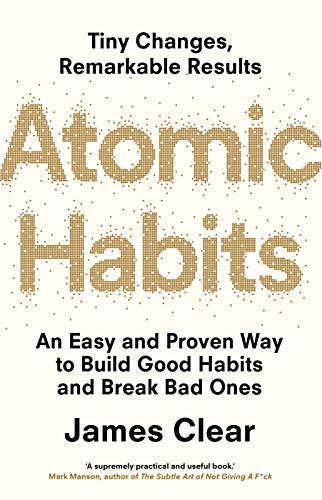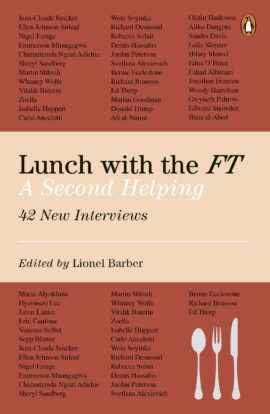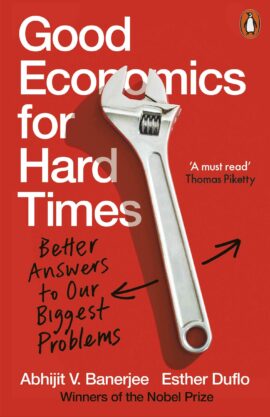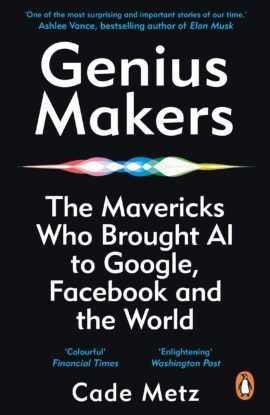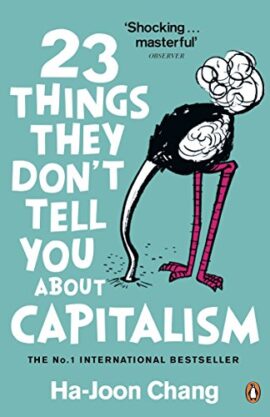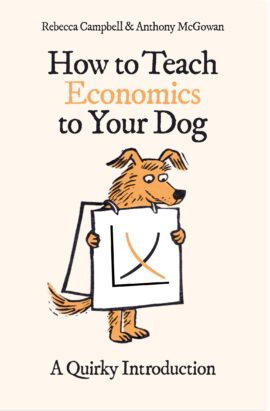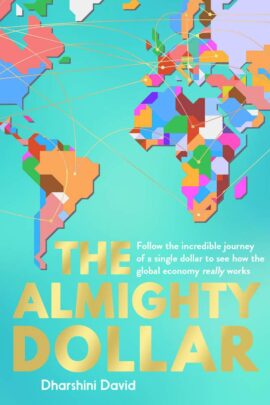«How to Teach Economics to Your Dog: A Quirky Introduction» a été ajouté à votre panier. Voir le panier
Atomic Habits, I Will Teach You To Be Rich, Mindset, The One Thing 4 Books Collection Set
4.140,00 د.ج
Brand New, Perfect Condition, allow 3-9 business days for standard shipping. To Alaska, Hawaii, U.S. protectorate, P.O. Box, and APO/FPO addresses allow 6-20 business days for Standard shipping. No expedited shipping. Over 3, 000, 000 happy customers. 100% Customer satisfaction guaranteed! Please feel free to contact us for any queries.
2
Items sold in last 3 days
Félicitation ! vous bénéficiez d'une livraison gratuite !
0
People watching this product now!
Estimated delivery dates: septembre 1, 2025 – septembre 8, 2025
Description
Brand New, Perfect Condition, allow 3-9 business days for standard shipping. To Alaska, Hawaii, U.S. protectorate, P.O. Box, and APO/FPO addresses allow 6-20 business days for Standard shipping. No expedited shipping. Over 3, 000, 000 happy customers. 100% Customer satisfaction guaranteed! Please feel free to contact us for any queries.
Informations complémentaires
| Editeur |
|---|
Produits similaires
Lunch with the FT: A Second Helping
3.450,00 د.ج
Lunch with the Financial Times has been a permanent fixture in the Financial Times for almost 25 years, featuring presidents, film stars, musical icons and business leaders from around the world. The column is now as well-established institution which has reinvigorated the art of conversation in the convivial, intimate environment of a long boozy lunch. On its 25th anniversary, Lunch with the Financial Times 2 will showcase the most entertaining, incisive and fascinating interviews from the past five years including those with Donald Trump, Sheryl Sandberg, Richard Branson, Yanis Varoufakis, Zadie Smith, Nigel Farage, Russell Brand and David Guetta, illustrated in full colour with James Ferguson's famous portraits.
Good Economics for Hard Times: Better Answers to Our Biggest Problems
2.530,00 د.ج
FROM THE WINNERS OF THE 2019 NOBEL PRIZE IN ECONOMICS'Wonderfully refreshing . . . A must read' Thomas PikettyIn this revolutionary book, prize-winning economists Abhijit V. Banerjee and Esther Duflo show how economics, when done right, can help us solve the thorniest social and political problems of our day. From immigration to inequality, slowing growth to accelerating climate change, we have the resources to address the challenges we face but we are so often blinded by ideology.Original, provocative and urgent, Good Economics for Hard Times offers the new thinking that we need. It builds on cutting-edge research in economics - and years of exploring the most effective solutions to alleviate extreme poverty - to make a persuasive case for an intelligent interventionism and a society built on compassion and respect. A much-needed antidote to polarized discourse, this book shines a light to help us appreciate and understand our precariously balanced world.
Antifragile
2.990,00 د.ج
Paperback. Pub Date :2013-06-06 Pages: 544 Language: English Publisher: Penguin Books The hottest thinker in the world Bryan Appleyard. Sunday TimesIn The Black Swan. Taleb showed us that highly improbable and unpredictable events underlie almost everything about our world ... Here Taleb stands uncer-tainty on its head. making it desirable. even necessary The antifragile is beyond the resilient or robust The resil-ient resists shocks and stays the same: the antifragile gets better and better.Just as human bones get stronger when subjected to stress and tension. many things in life benefit from stress. disorder. volatility. and turmoil. What Taleb has identified and calls antifragile are things that not only gain from chaos but need it in order to survive and flourish.Whats more . the antifragile is immune to prediction errors and protected from adverse events. Why is the cit...
Genius Makers: The Mavericks Who Brought A.I. to Google, Facebook, and the World
2.530,00 د.ج
This colourful page-turner puts artificial intelligence into a human perspective . . . Metz explains this transformative technology and makes the quest thrilling.' Walter Isaacson, author of Steve Jobs____________________________________________________This is the inside story of a small group of mavericks, eccentrics and geniuses who turned Artificial Intelligence from a fringe enthusiasm into a transformative technology. It's the story of how that technology became big business, creating vast fortunes and sparking intense rivalries. And it's the story of breakneck advances that will shape our lives for many decades to come - both for good and for ill.________________________________________________'One day soon, when computers are safely driving our roads and speaking to us in complete sentences, we'll look back at Cade Metz's elegant, sweeping Genius Makers as their birth story - the Genesis for an age of sentient machines.' Brad Stone, author of The Everything Store and The Upstarts'A ringside seat at what may turn out to be the pivotal episode in human history . . . easy and fun to read . . . undeniably charming.' Forbes
23 Things They Don’t Tell You about Capitalism
2.530,00 د.ج
Ha-Joon Chang's 23 Things They Don't Tell You About Capitalism turns received economic wisdom on its head to show you how the world really works.In this revelatory book, Ha-Joon Chang destroys the biggest myths of our times and shows us an alternative view of the world, including:There's no such thing as a 'free' marketGlobalization isn't making the world richerWe don't live in a digital world - the washing machine has changed lives more than the internetPoor countries are more entrepreneurial than rich onesHigher paid managers don't produce better resultsWe don't have to accept things as they are any longer. Ha-Joon Chang is here to show us there's a better way.'Lively, accessible and provocative ... read this book'Sunday Times'A witty and timely debunking of some of the biggest myths surrounding the global economy'Observer'The new kid on the economics block ... Chang's iconoclastic attitude has won him fans'Independent on Sunday'Lucid ... audacious ... increasingly influential ... will provoke physical symptoms of revulsion if you are in any way involved in high finance'Guardian'Important ... persuasive ... an engaging case for a more caring era of globalization'Financial Times'A must-read ... incisive and entertaining'New Statesman Books of the YearHa-Joon Chang is a Reader in the Political Economy of Development at the University of Cambridge. He is author of Kicking Away the Ladder: Development Strategy in Historical Perspective, which won the 2003 Gunnar Myrdal Prize, and Bad Samaritans: Rich Nations, Poor Policies and the Threat to the Developing World. Since the beginning of the 2008 economic crisis, he has been a regular contributor to the Guardian, and a vocal critic of the failures of our economic system.
Lunch with the FT: A Second Helping
3.450,00 د.ج
Lunch with the Financial Times has been a permanent fixture in the Financial Times for almost 25 years, featuring presidents, film stars, musical icons and business leaders from around the world. The column is now as well-established institution which has reinvigorated the art of conversation in the convivial, intimate environment of a long boozy lunch. On its 25th anniversary, Lunch with the Financial Times 2 will showcase the most entertaining, incisive and fascinating interviews from the past five years including those with Donald Trump, Sheryl Sandberg, Richard Branson, Yanis Varoufakis, Zadie Smith, Nigel Farage, Russell Brand and David Guetta, illustrated in full colour with James Ferguson's famous portraits.
How to Teach Economics to Your Dog: A Quirky Introduction
2.300,00 د.ج
A fun take on some of the biggest questions in economics, made accessible for non-experts (and dogs)Monty is a dog, not a financial genius, but economics still shapes his everyday life.Over the course of seventeen walks, Dr Rebecca Campbell chews over economic concepts and investigates how they apply to our lives – people and mutts alike. There are no graphs, no charts (Monty can’t read them) and definitely no calculus!How to Teach Economics to Your Dog tackles the knotty question of what economics actually is. Is it a mathematical science like physics? Or a moral and philosophical investigation of how societies should manage scarce resources?Along the way we meet some of the great thinkers from Adam Smith to Thomas Piketty, and ponder questions such as: What on earth does quantitative easing mean? And why are some countries so much richer than others?
The Almighty Dollar: Follow the Incredible Journey of Single Dollar to See How the Global Economy Really Works
2.530,00 د.ج
Have you ever wondered why we can afford to buy far more clothes than our grandparents ever could ... but may be less likely to own a home in which to keep them all? Why your petrol bill can double in a matter of months, but it never falls as fast? Behind all of this lies economics. It's not always easy to grasp the complex forces that are shaping our lives. But by following a dollar on its journey around the globe, we can start to piece it all together. The dollar is the lifeblood of globalisation. Greenbacks, singles, bucks or dead presidents: call them what you will, they are keeping the global economy going. Half of the notes in circulation are actually outside of the USA - and many of the world's dollars are owned by China. But what is really happening as our cash moves around the world every day, and how does it affect our lives? By following $1 from a shopping trip in suburban Texas, via China's central bank, Nigerian railroads, the oilfields of Iraq and beyond, The Almighty Dollar reveals the economic truths behind what we see on the news every day. Why is China the world's biggest manufacturer - and the USA its biggest customer? Is free trade really a good thing? Why would a nation build a bridge on the other side of the planet? In this illuminating read, economist Dharshini David lays bare these complex relationships to get to the heart of how our new globalised world works, showing who really holds the power, and what that means for us all.
